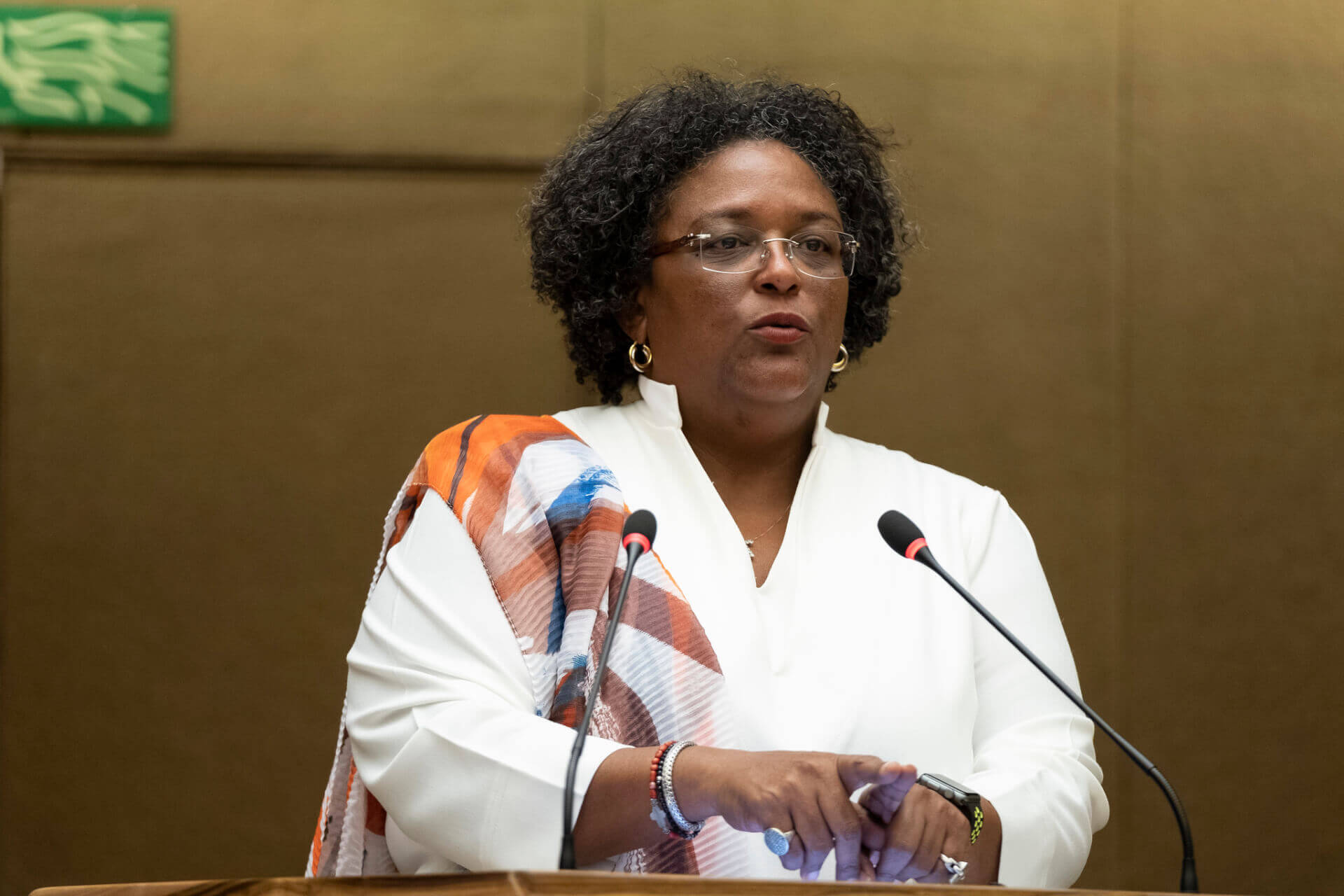On August 23, the International Day for the Remembrance of the Slave Trade and its Abolition, the Caribbean Community (CARICOM) reiterated its demands for justice for the damage caused by slavery and racism inflicted by European and North American countries. These calls were headed by Barbados Prime Minister Mia Mottley who said that slavery reparations need not be financial, but could also be centered around the theme of ‘justice’ in general.
CARICOM is an organization comprised of fifteen Caribbean nations that promotes regional economic and diplomatic coordination, and has its own Reparations Commission (CRC) that works towards securing compensation for Indigenous and Afro-descendant communities during the colonial era. The organization has also established a Prime Ministerial Sub-Committee on Reparatory Justice that is led by the Barbados PM.
The CRC demands a full formal apology from former colonizing countries that is constituted by: the repatriation for those who wish to return to their ‘homeland’, the establishment of an indigenous peoples development program and cultural institutions, participation in alleviating the public health crisis and illiteracy in former colonies, the transfer of technology, and debt cancellation.
In mid-July Mottley called for a ‘Caribbean Marshall Plan’ during a CRC meeting, saying that former colonies were left with insufficient financial resources to facilitate adequate development and upward social mobility when they finally achieved independence. Thus, she described the necessity of a “a written and clear apology to say, ‘we were wrong, we will not do it again’, and more importantly, we must pay recompense for what was done”.
These calls were echoed and expanded on by the CRC chairman, Sir Hilary Beckles, who said that in light of the “colonial mess” left behind by European countries, “apologies are not enough” and are merely “precursors for reparations”. This apology, however, Mottley says, must ‘acknowledge’ that “wrong was done” and note the “extraction of wealth and the destruction of people”.
Aside from the financial impacts of slavery and colonialism, Mottley has also sought to shed light on the less-acknowledged remnants of that era, saying that “Most people don’t even recall that the diets of slaves were heavily salted and in many instances have led to the kinds of intergenerational hypertension and diabetes and chronic non-communicable diseases that we see”. In fact, over 60% of all Caribbean people over the age of 60 have hypertension and diabetes.
Beckles, for instance, says that the Caribbean is the “diabetic and hypertensive center of the world” and that Barbados and Jamaica are the “amputation capital[s] of the world as a result of complications arising from diabetes”. He remarks that “more amputations are committed in the Caribbean per capita than any other part of the world”. He says that that during the colonial era, sugar, for instance, was not consumed as a ‘sweetener’, but as a meal of its own, which has impacted the health outcomes of citizens on those countries to this day.
Indeed, calls for reparations have been ongoing for years but have recently gained steam and more attention, particularly in light of the anti-racism protests around the world. In July Belgium’s King Philippe I expressed his “deepest regrets” for the “acts of violence” and “suffering” enacted upon the Congolese people. However, he stopped short of offering an apology. Likewise, Namibia remains unsatisfied by Germany’s financial offer for reparations and its refusal to call its offer ‘reparations’ in the first place. Thus, the demands for justice for former colonies and enslaved communities goes on.
CARICOM Reiterates Demand for Justice and Reparations for Slavery and Colonialism
CARICOM has for years demanded action by European and North American countries.
August 24, 2020

IMAGE SOURCE: TIMOTHY SULLIVAN/UNCTADBarbados Prime Minister Mia Mottley
